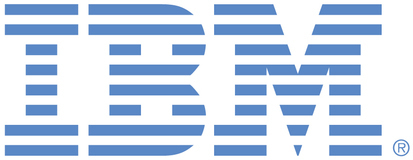
This portal is to open public enhancement requests against the products and services belonging to IBM Sustainability Software. To view all of your ideas submitted to IBM, create and manage groups of Ideas, or create an idea explicitly set to be either visible by all (public) or visible only to you and IBM (private), use the IBM Unified Ideas Portal (https://ideas.ibm.com).
Shape the future of IBM!
We invite you to shape the future of IBM, including product roadmaps, by submitting ideas that matter to you the most. Here's how it works:
Search existing ideas
Start by searching and reviewing ideas and requests to enhance a product or service. Take a look at ideas others have posted, and add a comment, vote, or subscribe to updates on them if they matter to you. If you can't find what you are looking for,
Post your ideas
Post an idea.
Get feedback from the IBM team and other customers to refine your idea.
Follow the idea through the IBM Ideas process.
Specific links you will want to bookmark for future use
Welcome to the IBM Ideas Portal (https://www.ibm.com/ideas) - Use this site to find out additional information and details about the IBM Ideas process and statuses.
IBM Unified Ideas Portal (https://ideas.ibm.com) - Use this site to view all of your ideas, create new ideas for any IBM product, or search for ideas across all of IBM.
ideasibm@us.ibm.com - Use this email to suggest enhancements to the Ideas process or request help from IBM for submitting your Ideas.

Superseded by https://bigblue.aha.io/ideas/ideas/MASCOM-I-119
After consulting with IBM on 2/24/2025, we agreed to revise the idea to, "Introduce the ability to specify a supported version of the catalog during installation time to better support multi0ple implementations of MAS within the same OS Cluster". Please advise on whether it is preferable to retain this Idea or create a new one.
This is unfortunately just not possible. Even though operators are installed per namespace, there are aspects of the operator install that are cluster scoped, when an operator is installed we are installing an extension to the Kubernetes API on the cluster, represented by a ClusterResourceDefintion (CRD).
To support multiple releases of MAS on a cluster we maintain a consistent fix-level across those releases to ensure any necessary compatibility updates are available in the CRD, because if you install MAS 8.10 and MAS 8.11 there is only one CRD, and it could be the one that came with MAS 8.10 or the one that came with MAS 8.11, so when we deliver a fix we have to know that the fix is applied across the board so that it guarantees the cluster-scoped resources that are part of the install are fixed, not just the instance-scoped resources. By providing our operator packages to a cluster in multiple packages we will not know which catalog's package owns the CRD, and depending which catalog you update you may only end up getting half the update.
Furthermore, OLM v1 is moving away from even supporting duplicate operator packages in different catalogs, so this is not a direction we would like to move MAS, or encourage customers to pursue: https://operator-framework.github.io/operator-controller/tutorials/install-extension/
Today, we offer the ability to pin the version of the operands to a specific level (spec.version), and the supported versions are listed in the status field (status.versions.supportedVersions), when using this it will cause the operand to remain at the chosen version even when the operator is updated. This allows for patch release differences across MAS instances on the same cluster, while maintaining parity in the controller managers that are installed. Although we designed this feature primarily to be used as a short term tool to facilitate rollback of a bad update or similar, this mechanism could be used to independently control the patch level of installed MAS instances. Doing so would place an extra burden on the team operating the MAS estate to control the specific versions in each MAS instance, in addition to the normal update processes.
I don't see the connection between maintaining a consistent patch level across instances and being able to have 8.10.11 and 8.10.12 running on the same cluster, and needing to "buy massive amounts of hardware", so I may be missing something in the idea here; feel free to provide more information if you feel this is the case.